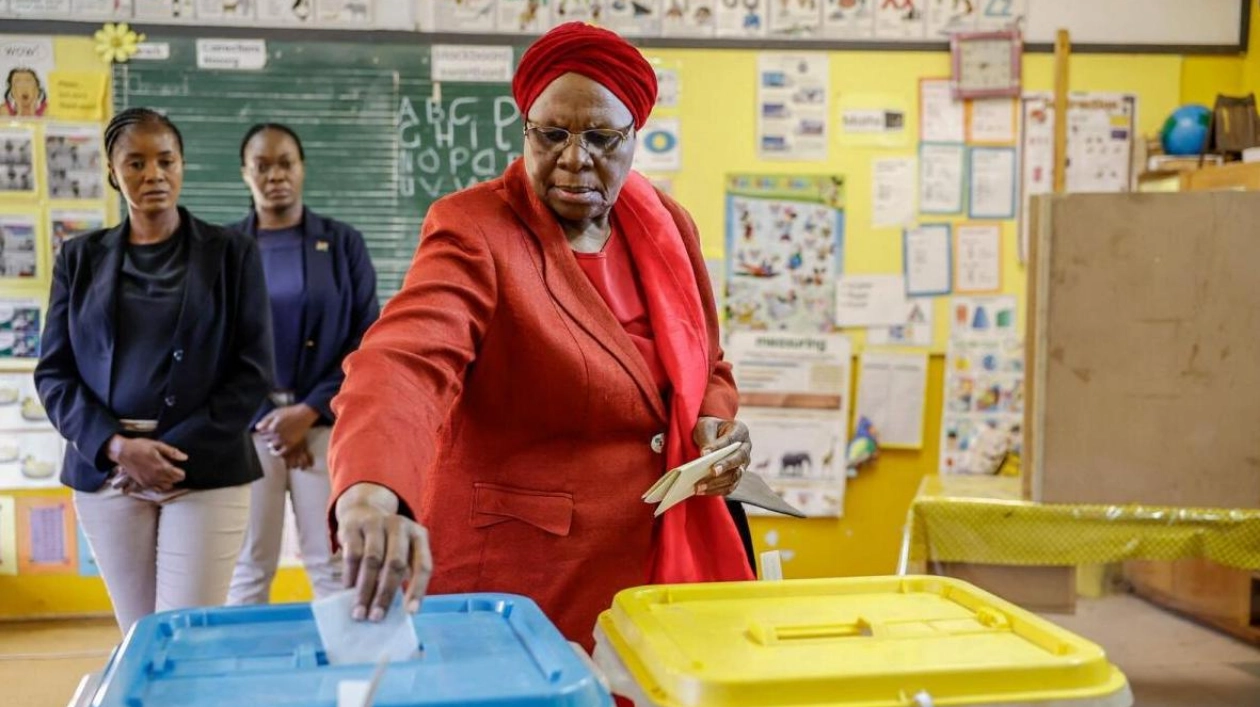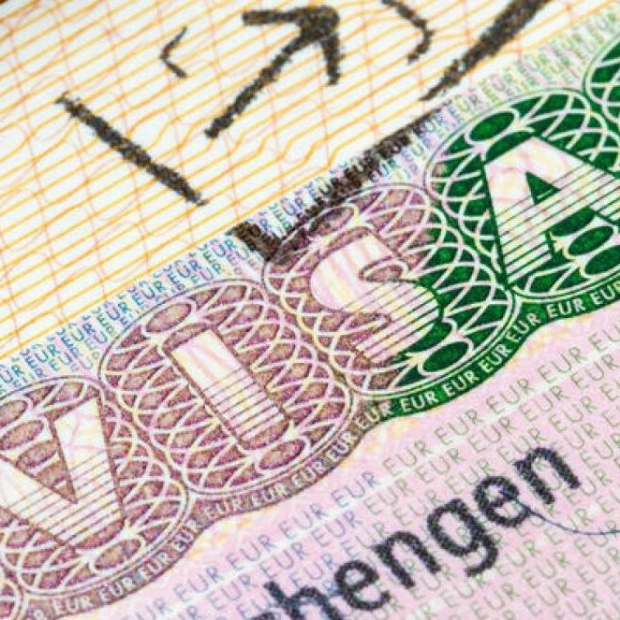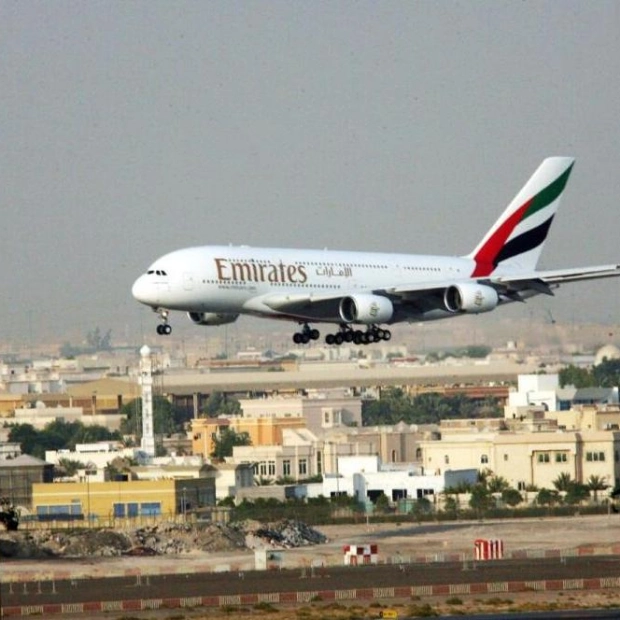South West Africa People's Organisation (SWAPO) presidential candidate Netumbo Nandi-Ndaitwah cast her vote at the Emma Hoogenhout Primary school polling station in Hochland Park, Windhoek, on November 27, 2024, during Namibia's general election.
Namibia's Vice-President, Netumbo Nandi-Ndaitwah from the ruling SWAPO party, secured a presidential victory with 57.31 percent of the vote, according to the election commission's announcement on December 3.
Namibia's first female president, Netumbo Nandi-Ndaitwah, declared on Thursday that her win in last week's contentious election had shattered a 'glass ceiling.' The vice-president garnered just over 57 percent of the vote, significantly ahead of the main opposition Independent Patriots for Change (IPC) candidate, who received 25.5 percent, as per the election authority's statement on Tuesday. However, the IPC has disputed the results, citing numerous irregularities.
'As a woman, I acknowledge that my election to the highest office is undoubtedly breaking the glass ceiling for a Namibian woman,' she told reporters during her first briefing since the announcement of her victory. At 72, Nandi-Ndaitwah became the first woman to lead the mineral-rich nation, which has been governed by her SWAPO party since gaining independence from apartheid South Africa in 1990.
In her speech, Namibia's new leader lauded Liberia's former president, Ellen Johnson Sirleaf, who in 2006 became Africa's first female president, for paving the way. 'And for me, it's about reaffirming that the equal responsibility of women and men in society is a reality,' Nandi-Ndaitwah stated.
Nandi-Ndaitwah, a long-standing SWAPO member known by her initials NNN, will join the ranks of Africa's few female leaders. The conservative daughter of an Anglican pastor, she assumed the vice-presidential role in February this year. She has maintained a strict stance on abortion, which is prohibited in the country except in extraordinary circumstances, and has not actively promoted women's rights.
Without her customary 'doek' head wrap, Nandi-Ndaitwah emphasized on Thursday that her victory bestowed upon her and her SWAPO party 'constitutional and moral legitimacy to govern.' However, the November 27 election, extended until November 30, faced logistical and technical challenges, including a shortage of ballot papers that caused long queues. Some voters abandoned their attempts to vote after waiting for up to 12 hours on the first day.
The opposition IPC claimed these issues were deliberate attempts to deter voters and refused to accept the results. Nandi-Ndaitwah promised significant change, stating, 'It's not going to be business as usual. We must have a radical shift in addressing the plight of our people, especially the downtrodden and vulnerable communities.' She is set to be inaugurated on March 21, 2025.
Nandi-Ndaitwah, who has been in government since 2000, declined to blame the electoral commission when questioned about its management of the vote, asserting that the authority had concluded the process. The Electoral Commission of Namibia acknowledged shortcomings in the vote's organization, including insufficient ballot papers and overheating of electronic tablets used for voter registration.
Of the nearly 1.5 million registered voters in the thinly populated country, nearly 77 percent cast ballots in the presidential election, the commission announced on Tuesday. Despite the turnout exceeding that of the previous presidential vote, it remained uneven. In the northern regions of Ohangwena and Omusati, traditional SWAPO strongholds where NNN performed best with nearly 80 and 83 percent of the vote, voter turnout reached 91 and 92 percent, significantly higher than the national average. Conversely, in the densely-populated Khomas region, which includes the capital Windhoek and experienced numerous electoral issues, only 67 percent of registered voters participated.
Source link: https://www.khaleejtimes.com






